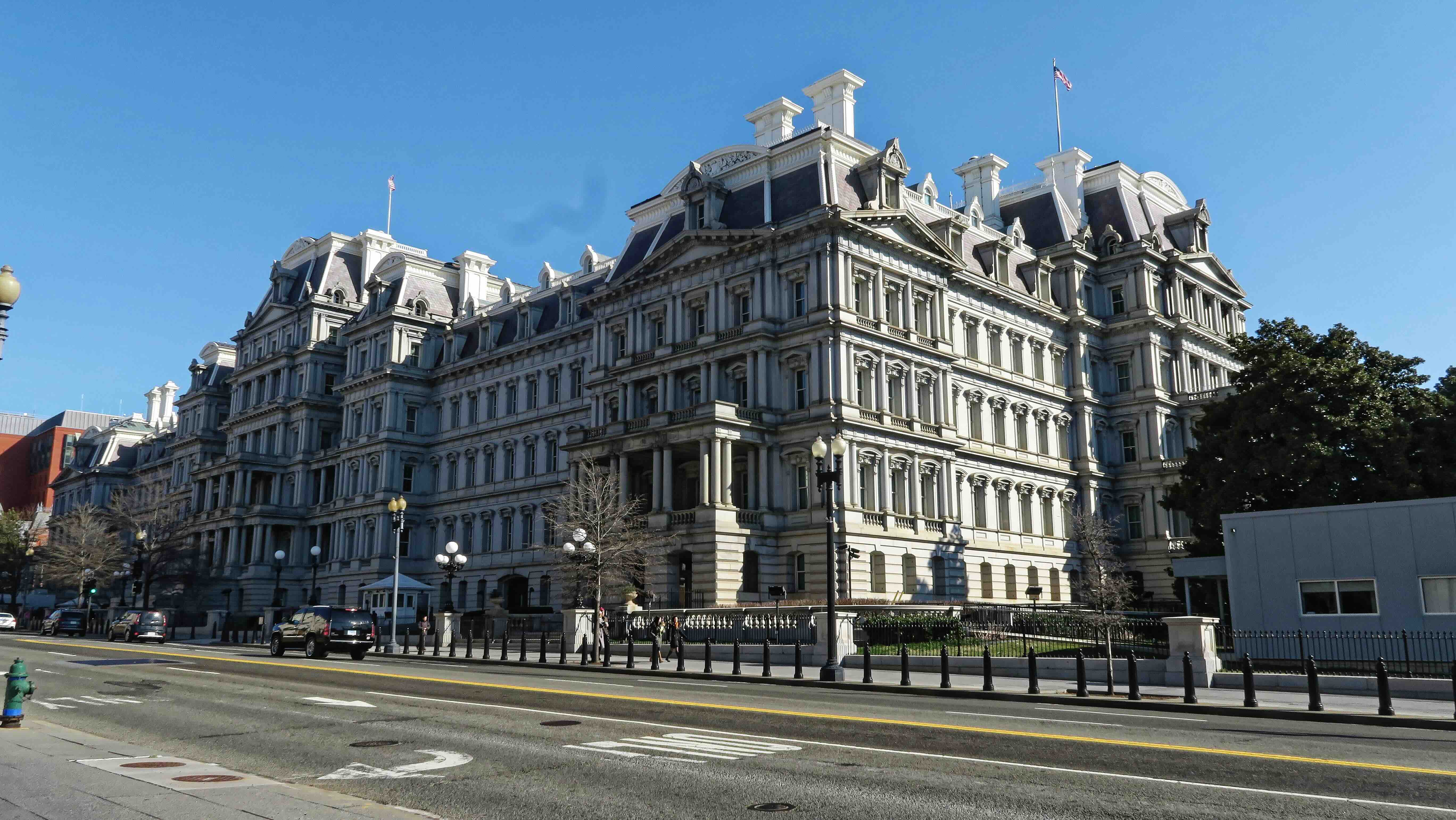Have a story idea
Have a story idea? Send it to us here.

Source : The DOGE office is located in the Eisenhower Executive Office Building. Wikimedia.
March 11, 2025
Author : Patty Allen
On February 26, 2025, President Donald Trump signed Executive Order 14222, titled “Implementing the President’s ‘Department of Government Efficiency’ Cost Efficiency Initiative.”
This order aims to overhaul federal spending on contracts, grants, and loans to promote transparency and accountability within government operations.
The executive order targets discretionary spending through federal contracts, grants, loans, and related instruments. However, it excludes direct assistance to individuals and expenditures related to immigration enforcement, law enforcement, the military, public safety, and the intelligence community.
A key component of the initiative is the development of a centralized technology system to record every agency payment made under covered contracts and grants. Agency employees who approve payments must submit a brief, written justification for each payment, which will be publicly accessible. This system also enables the pause and rapid review of any payment lacking proper justification.
Within 30 days of the order, agency heads are instructed to review all existing covered contracts and grants to determine whether they should be terminated, modified, or renegotiated to reduce federal spending or reallocate resources more efficiently. Priority is given to contracts and grants involving educational institutions and foreign entities, focusing on identifying waste, fraud, and abuse.
Agencies have been required to conduct comprehensive reviews of their contracting policies, procedures, and personnel within 30 days of the order.
During this period, issuing new contracting officer warrants is generally prohibited unless deemed necessary by the agency head. This measure could temporarily impact the procurement process as agencies adjust to new guidelines.
Following the completion of these reviews, agency heads are directed to issue guidance on signing and modifying contracts to promote government efficiency and align with the administration’s policies. New contracts can be approved on a case-by-case basis before this guidance is issued. Agencies must also provide monthly reports on contracting activities, including payment justifications, to the Department of Government Efficiency (DOGE) for review.
The order imposes a freeze on non-essential travel and credit card spending. Agencies are instructed to develop systems to centrally approve records for federally funded travel deemed non-essential, such as conferences. Once these systems are in place, employees are prohibited from undertaking non-essential travel without proper approval and justification. Additionally, all agency-held credit cards are frozen for 30 days, except for those used for critical services, pending approval from the agency head and DOGE.
The order mandates that agencies:
This executive order is broad in scope and leaves several questions unanswered. It may lead to a slowdown in the awarding of government contracts, potential delays in payments under existing contracts, and an increase in contract terminations or suspensions. Government contractors are advised to understand their rights and obligations under prime contracts and subcontracts as these changes are implemented.
The order has elicited varied responses. Some applaud the move towards greater transparency and fiscal responsibility. However, others express concerns about potential disruptions to government services and the broader economic impact. For instance, the National Park Service employees are facing operational challenges due to a $1 spending limit imposed on government credit cards, affecting routine purchases necessary for park maintenance and public safety.
Additionally, protests have emerged targeting figures like Elon Musk, who, as a senior adviser, oversees DOGE. Demonstrations at Tesla stores nationwide, including in San Antonio, have reflected dissatisfaction by local activities with Musk’s role in federal spending cuts.
In essence, as agencies implement these directives, the full impact on government operations and contractors will become clearer in the coming months.
Category : Federal Government Market Watch
